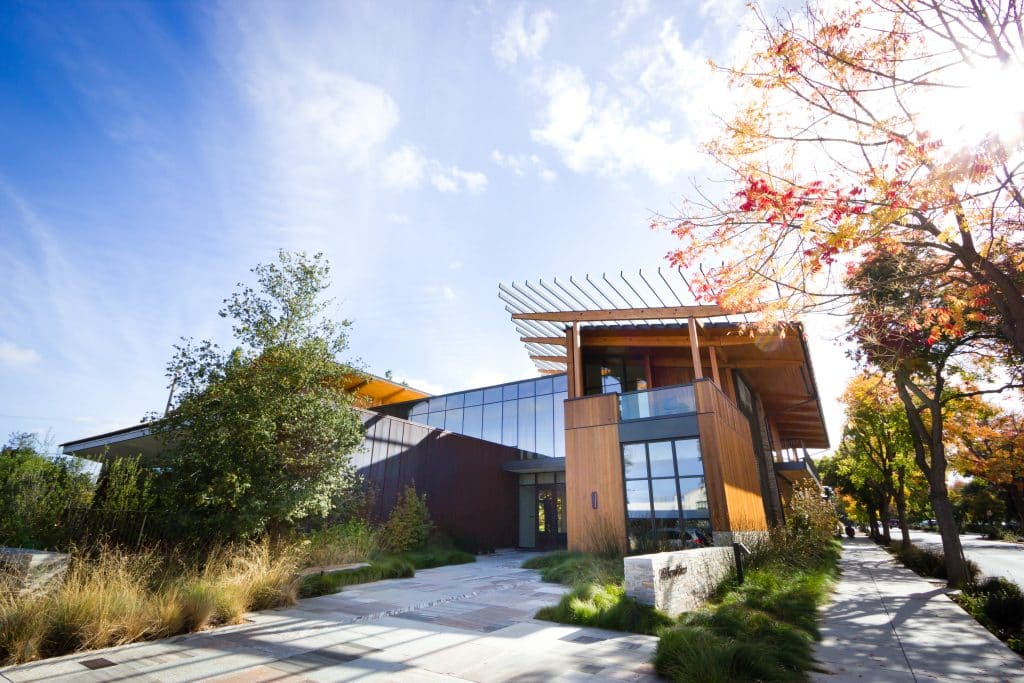The COVID-19 pandemic has touched every aspect of daily life—from how people work and learn, to how children and older adults are cared for, to whether and when we can spend time with people we love. Underlying economic, educational, and racial inequities have further exacerbated the impacts of the pandemic on specific communities. In these highly-impacted communities, we believe the drive toward solutions must engage trusted local leaders and networks—not just by including them, but by centering their knowledge and expertise as community problem-solving is developed, implemented, and refined.
Perpetual inequities lead to disparate impacts
In Monterey County, one of the California counties the Packard Foundation’s Local Grantmaking program serves, the COVID-19 pandemic has had an outsized impact on specific communities and workforce sectors. Monterey County’s agricultural sector feeds California and the nation, and its landscapes draw visitors from around the world. These economic sectors have been kept afloat through the pandemic by essential workers—particularly farmworkers, child caregivers, and hospitality workers—and these same workers disproportionately have borne the brunt of the pandemic.
Many of the Hispanic, Latinx, Indigenous and immigrant workers who play a critical role within Monterey County’s economy live in households concentrated in census tracts where COVID-19 infection, hospitalization, and death rates have been highest. The high rates are due to a variety of factors, including historic health inequities, quarantining made difficult by inadequate housing and multiple households living together, insufficient internet access to make testing and vaccine appointments, and language barriers to accessing information.
The outcomes are stark. Analyzing cases in which race and ethnicity information is available, Monterey County estimates that as of March 29, 2021, Hispanic and Latinx residents represent 86% of COVID-19 cases, 76% of hospitalizations, and 61% of deaths, yet comprise 60% of the County’s total population. One study estimated in November 2020 that 13% of farmworkers in Salinas tested positive for the disease, compared to California’s overall infection rate of 5%. By January 2021, Monterey County ranked 13th among California’s 58 counties in COVID-19 cases per population.
Trusted local leaders must be at the heart of solutions
The disproportionate impact prompted leaders of Monterey County’s community-based organizations (CBOs) to step up, in part by employing a cadre of community health workers (CHWs) who live and work in many of the hardest hit communities. Every day, these frontline workers reach out to people in Spanish, English, and Indigenous languages to share up-to-date information about how to stop the spread of COVID-19; connect people with resources such as food, housing, and cash assistance; and secure COVID-19 testing and vaccination appointments for community members.
We must follow the lead of the CBOs directly engaging with the hardest hit communities, a premise central to our recent investments. These grants include $825,000 to the Action Council of Monterey County to provide wage replacement for workers exposed to COVID-19, direct cash assistance to families, and to support CHWs as they reach out to people in their communities, plus a cumulative total of $1.2 million in multi-year grants to three organizations: the Action Council for its Building Healthy Communities and Mujeres en Acción programs, Communities Organizations for Relational Power in Action (COPA), and Centro Binacional para el Desarrollo Indígena Oaxaqueño (Centro Binacional).
We must be inclusive and work in partnership to share knowledge, resources, and power
The Packard Foundation is working with others in Monterey County who share this belief in emphasizing community-based solutions. In fall 2020, we joined the COVID-19 Collaborative, a multi-sector, countywide effort led by the Community Foundation for Monterey County, as it came together to help coordinate the community fight against COVID-19, employing science and best practices in public health and equity. The Collaborative includes CBOs, the Monterey County Health Department, hospitals and healthcare systems, agriculture and hospitality businesses, and local philanthropy; it quickly focused on the promise of the CHW model and developed the VIDA (Virus Integrated Distribution of Aid) program to enhance the County’s health outreach efforts. The VIDA program supports the CHWs as they deliver messaging on vaccines and other resources. The Collaborative also helps coordinate the CHWs’ operations to support the County in scaling up vaccinations; offers scientific leadership grounded in data; and aligns funding and marketing to support these various efforts.
We have invested $1.32 million to support the Community Foundation for Monterey County to carry out the work of the Collaborative. This funding will gird countywide logistical support for vaccination sites; build on existing vaccination strategies with local clinics that serve farmworkers; and augment County government vaccination efforts that include outreach to non-English speakers and rural residents by providing language interpreters at sites and working with the local transit system to provide rides to residents in rural parts of the county.
If we hope to stem the tide of this deadly pandemic in a way that respects all people and embraces equity, community-centered solutions must be at the heart of the work now, and the path ahead. We are encouraged by the work underway in Monterey County, and are hopeful it portends effective, inclusive action to benefit the entire community in the years ahead.
You can learn more about the COVID-19 Collaborative here. For more information on COVID-related resources in Monterey County, please click here, and for information in multiple languages text “COVID19” to 211-211.









